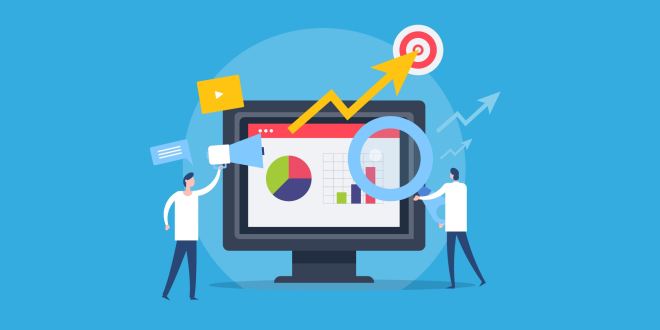This marketing strategy enables marketers to reach the correct audience, capture their interest, and provide what they want at the right time. In the end, higher conversion rates equate to more significant ROI.
In this article, we'll look at the importance of data-driven marketing strategies:
1) Help to reach the right audiences
Data can assist you in locating your "perfect" client. As a marketer, you want to identify those clients who would not only convert and make a purchase from you but also act as brand advocates to their friends and relatives by being devoted, repeat customers. Marketers may leverage a wealth of data to learn everything there is to know about each customer that visits their website and physical store. Tools for online marketing analytics can offer valid demographic data about a user's online behaviors and interactions with your website.
2) It tells you what works
Data-driven marketing can provide a precise, unbiased evaluation of the effectiveness of your marketing approaches, strategies, and campaigns.
Knowing which aspects of your marketing are working well and which ones require improvement can help you save a lot of time and money. You won't have to spend money on marketing strategies that don't work anymore. Additionally, you'll be able to better use your resources by knowing which aspects of your marketing have high conversion rates.
3) It locates your customers
How do customers learn about the website or store of your business? Marketing data can tell you the answers and other inquiries about your potential clients. For example, you may find out which website people came from using marketing automation and analytics solutions. Additionally, this applies to social media. Your marketing and advertising initiatives can benefit from knowing the websites and social media platforms each customer frequently uses and the days and hours when users are most likely to be on them.
4) It is the future of marketing
Knowing which aspects of your marketing are working well and which ones require improvement can help you save a lot of time and money. You won't have to spend money on marketing strategies that don't work anymore. Additionally, you'll be able to better use your resources by knowing which aspects of your marketing have high conversion rates.
Key benefits of data-driven marketing:
You will succeed if you decide to use a data-driven marketing plan. Here are a few significant advantages:
A chance to improve customer experience
Marketers can customize customer experiences and increase customer loyalty by leveraging detailed consumer profiles. As a result, potential customers will only decide to purchase in the middle of it, resulting in a shorter customer buying journey, higher satisfaction, and a higher return on investment.
Optimized marketing attribution
Marketers can determine the part of the advertising expenditure that has the most significant influence on brand awareness or conversions by using analytical tools in data-driven marketing. In the end, marketing experts can determine which advertisements or campaigns need to generate more interested parties, assisting them in maximizing their spending. Likewise, businesses can deploy their budgets effectively by observing what pushes prospective and current customers along the funnel.
Creating relevant content
Marketers may convey the appropriate message in the proper moment by learning more about the kind of material that their target audience prefers to engage with. Thanks to data-driven marketing, professionals can better understand customers by knowing what types of content and messaging engage with their target audience.
Identifying the best promotion channels
The data collected from analytical tools can also help marketers determine which channels they should use to target their customers.
Ultimately, data-driven marketing strategy is gaining more attention over the past years as it allows marketers to run better ad campaigns and increase their ROI significantly. Data-driven marketing is the foundation of today's advertising strategies and is required if you want to deliver the personalized experience consumers demand.
 images/bannerimages/Blog-Banner.jpg
images/bannerimages/Blog-Banner.jpg 


